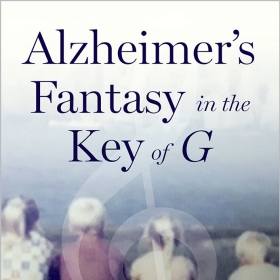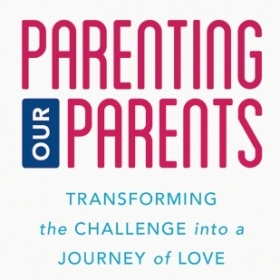Alzheimer’s Fantasy in the Key of G by Kirsten Critz Levy ’74 is no traditional medical memoir. Levy embraces past, present, and future, mixing reality and imagination, to explore the confusing nature of her mother’s illness.

Kirsten Critz Levy ’74
Alzheimer’s Fantasy in the Key of G: A Memoir
(TouchPoint Press)
411 pages, $17.99
Alzheimer’s Fantasy in the Key of G by Kirsten Critz Levy ’74 is no traditional medical memoir. Levy embraces past, present, and future, mixing reality and imagination, to explore the confusing nature of her mother’s illness.
How did you land on the unusual structure of your memoir?
I began [the process] by narrating my experience within the medical world. Everything—setting, jargon, my mother’s condition—was so foreign and awful that I took copious notes, asked lots of questions. I felt I had to get it down immediately as I was experiencing this new technical world. The initial 50 pages were accurate but sterile; I felt the lackluster text unsuitable to the different shades of truth. My mother and I had a fractious relationship at times, though I always held her in high esteem and wished to emulate her wit, insouciance, and rebellious nature. Alzheimer’s took her to nonverbal land, and it made me want to write a book to go beyond the Alzheimer’s that robbed her. It was a decision that came about organically, not a plan. It wasn’t until I finished monkeying around with the format that it became obvious that I had not written a how-to book on Alzheimer’s caregiving. I had chosen storytelling, because it was important to go beyond the medical facts, understand the whole picture, go into her mind to speak up for her.
What were some challenges you experienced while writing?
It was challenging to switch between different points of view and keep the threads straight. I needed to be a disciplined editor, watching for good fit and pacing, and not allowing it to turn into a history book or to feel like two separate books. The sensation of my mother taking me with her into her Alzheimer’s brain where I could participate in her story and tell it for her was really rewarding.
How did you handle writing about a difficult topic like Alzheimer’s?
It took 18 years! Eight years of caregiving and 10 years reflecting and writing. The initial chapter went down fast, but I needed time; even while active writing was not happening, the story was happening in the background of my mind.
What are some of your favorite memoirs?
Several memoirs have stayed with me: Personal Memoirs of U. S. Grant, Anne Frank’s The Diary of a Young Girl, Tara Westover’s Educated, and Cheryl Strayed’s Wild. I also enjoyed Angela’s Ashes by Frank McCourt; the immigrant experience is a thread that runs through my family, from my own Irish ancestry to my husband’s immigration from Morocco by way of Switzerland. My brothers married women from Greece and Chile, my daughters’ husbands are from London and Johannesburg/Haifa, and my youngest’s spouse is first-generation Mexican American. Great migrations! That’s a topic I’m exploring in my next project.
Bartels is senior editorial writer for Wellesley College and the author of Good Grief: On Loving Pets, Here and Hereafter (Mariner).


